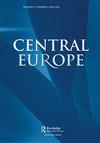听得见的国家:阿尔巴尼亚的社会主义政治和流行音乐
IF 0.1
2区 历史学
Q2 HISTORY
引用次数: 8
摘要
更多的官僚是完全合理的。迪克最后对行政改革促进委员会(Commission for the Promotion of Administrative Reform, 1911 - 1914)进行了引人入胜的描述,该委员会收集并出版了大量关于帝国官僚机构实际运作方式以及如何提高效率的数据汇编。委员会的调查结果在第一次世界大战爆发后被搁置,但可以预见的是,官僚们从未提出过减少官僚的建议。Deak把所有这些Vielschreiberei作为国家建设的证据:“这不是一个虚弱、破旧的国家”(第273页)。这个评论者并不那么肯定。诚然,如果君主政体的领导人在1914年没有参战,谁知道这个国家会变得多强大、多现代化?但事实仍然是,君主制确实参战了,在一场考验多民族忠诚到极限的冲突的锤击下,一切最终都崩溃了。迪克承认(第274页)“国家是脆弱的东西”;尽管官僚机构的规模不断扩大,但君主制显然比大多数国家都要脆弱。在技术方面,尽管迪克的风格引人入胜,但斯坦福大学的编辑们似乎都没有能力识别出“骑士”(knightage,第150页)、“议员”(councilmen,第154页)和“拆除”(demolition,第113页)等新词。地图4(第168页)关于新帕扎尔的桑贾克有一个令人震惊的错误。然而,最令人恼火的是没有参考书目。这在任何学术出版物中都是虚假的经济;如果这本有价值的书进入下一个版本,作者应该坚持把这一重要的学术礼貌包括在内。本文章由计算机程序翻译,如有差异,请以英文原文为准。
Audible States: Socialist Politics and Popular Music in Albania
more bureaucrats as entirely reasonable. Deak concludes with a fascinating account of the Commission for the Promotion of Administrative Reform (1911–14), which collected, and published, a vast compendium of data on how the imperial bureaucracy actually worked, and how it might be made more efficient. The Commission’s findings were shelved on the outbreak of the First World War, but predictably the one thing the bureaucrats never suggested was fewer bureaucrats. Deak takes all this Vielschreiberei as evidence of statebuilding: ‘This was hardly a weak, decrepit state’ (p. 273). This reviewer is not so sure. Granted, had the Monarchy’s leaders not gone to war in 1914, who knows how much stronger and more modern the state might have been made? But the fact remains that the Monarchy did go to war, and under the hammer blows of a conflict that tested the loyalty of multiple nationalities to the limit, everything in the end fell apart. Deak acknowledges (p. 274) that ‘states are fragile things’; despite the growing size of its bureaucracy, the Monarchy was clearly more fragile than most. On the technical side, although Deak’s style is engaging, it seems none of Stanford’s editors has the skills to spot neologisms like ‘knightage’ (p. 150), ‘councilmen’ (p. 154) and ‘dismantlement’ (p. 113). Map 4 (p. 168) contains an egregious error regarding the Sanjak of Novi Pazar. Most annoying, however, is the absence of a bibliography. This is a false economy in any academic publication; if this rewarding book goes into a subsequent edition, the author should insist on inclusion of this essential scholarly courtesy.
求助全文
通过发布文献求助,成功后即可免费获取论文全文。
去求助
来源期刊

Central Europe
HISTORY-
CiteScore
0.20
自引率
0.00%
发文量
7
期刊介绍:
Central Europe publishes original research articles on the history, languages, literature, political culture, music, arts and society of those lands once part of the Habsburg Monarchy and Poland-Lithuania from the Middle Ages to the present. It also publishes discussion papers, marginalia, book, archive, exhibition, music and film reviews. Central Europe has been established as a refereed journal to foster the worldwide study of the area and to provide a forum for the academic discussion of Central European life and institutions. From time to time an issue will be devoted to a particular theme, based on a selection of papers presented at an international conference or seminar series.
 求助内容:
求助内容: 应助结果提醒方式:
应助结果提醒方式:


